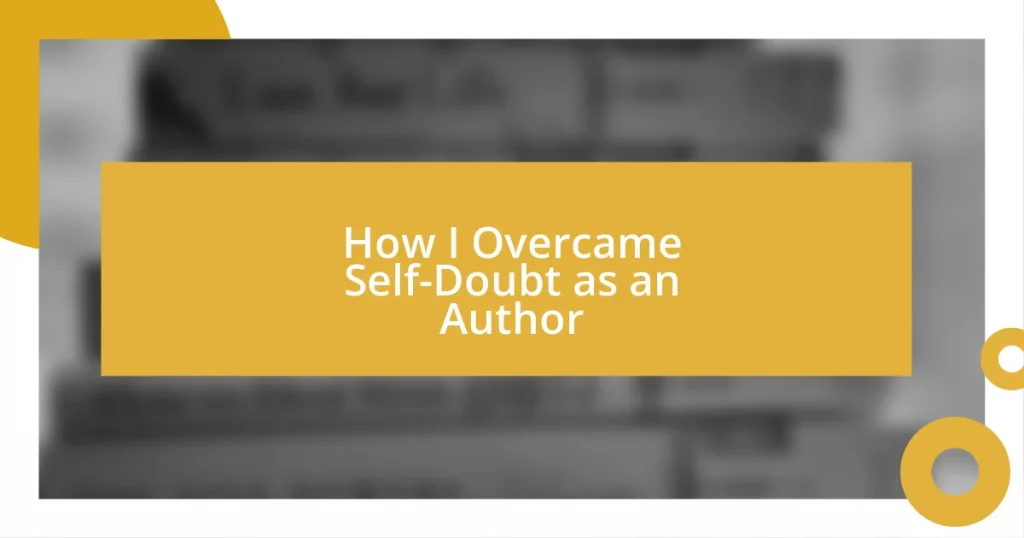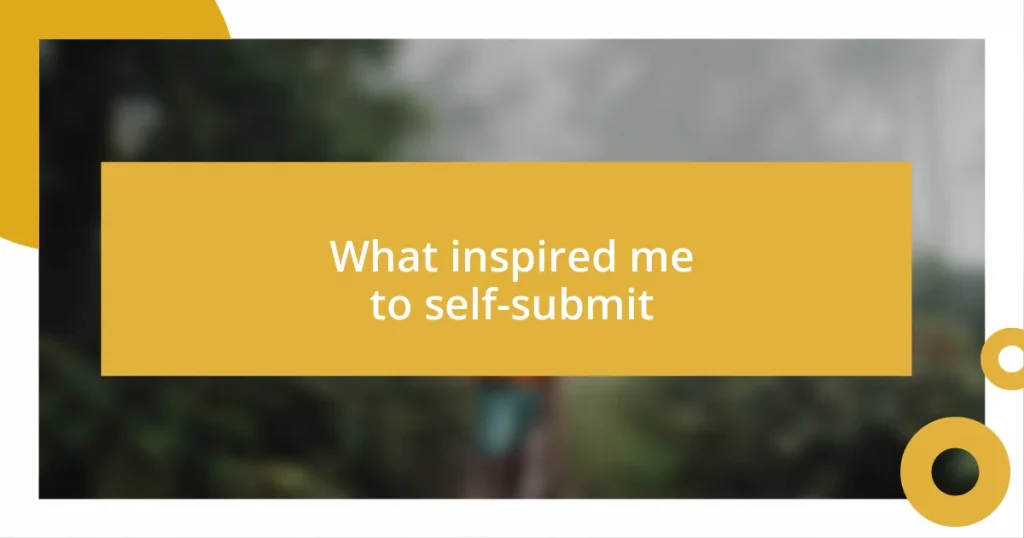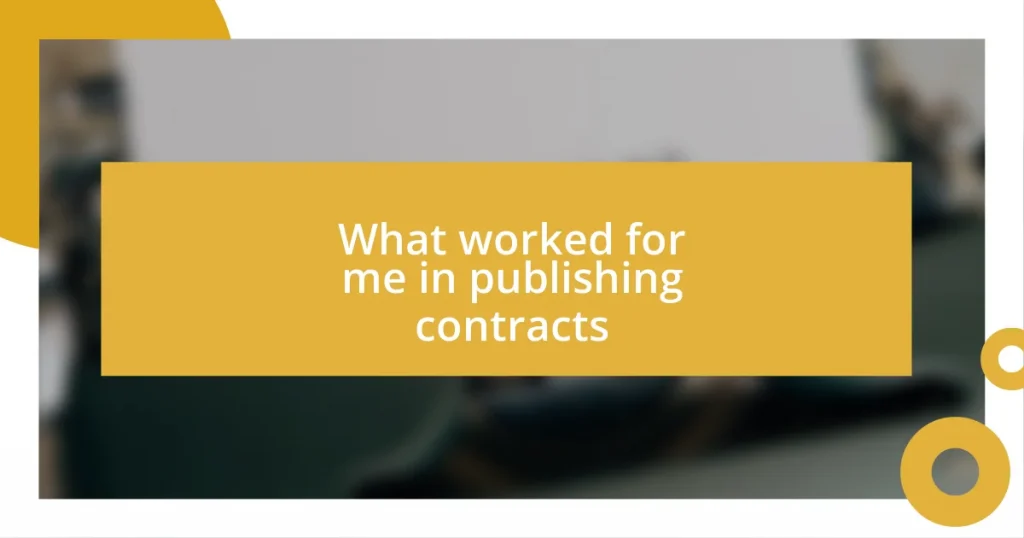Key takeaways:
- Identifying personal triggers for self-doubt, such as overthinking drafts and early critiques, is crucial for regaining writing confidence.
- Developing a growth mindset, embracing constructive feedback, and setting achievable writing goals can significantly reduce self-doubt and enhance creativity.
- Celebrating small wins and establishing a supportive network fosters a sense of belonging and motivates authors to overcome challenges and recognize their progress.
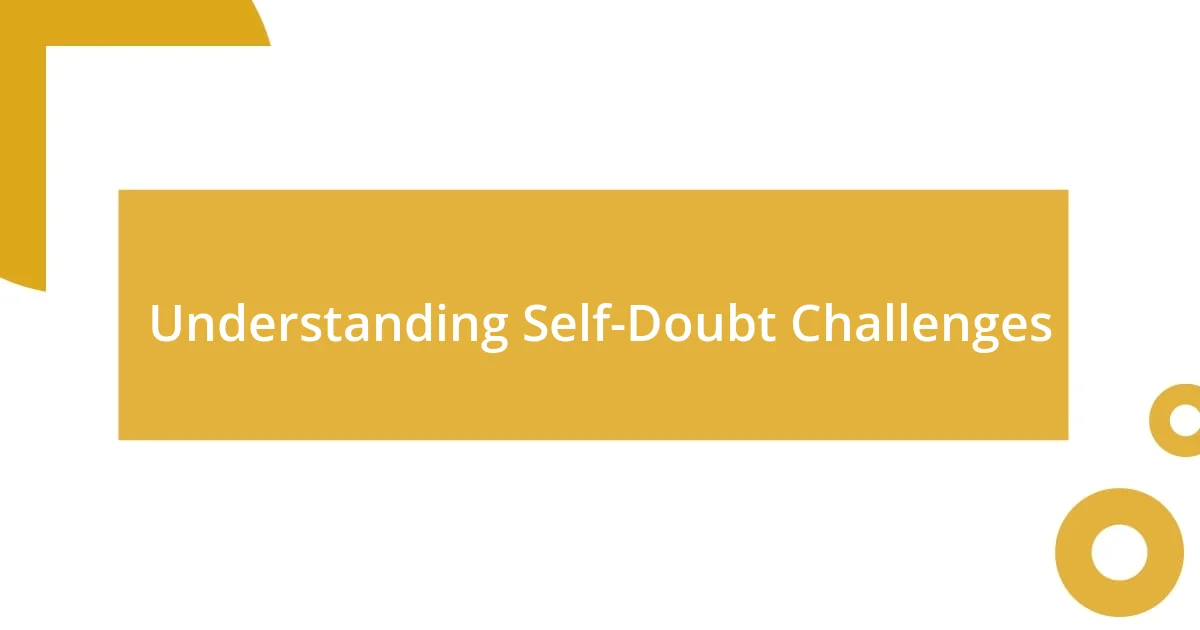
Understanding Self-Doubt Challenges
Self-doubt can be an insidious companion for any author. I remember sitting in front of my blank screen, questioning whether my words were good enough or even worthy of being read. Have you ever found yourself asking, “What if no one relates to my story?” That kind of thinking can spiral out of control fast.
There are moments when self-criticism feels like an unwelcome intruder. I recall a time when I received feedback on a piece I had poured my heart into. Instead of celebrating the positivity, my mind fixated on the one critical comment. How often do we let one negative voice drown out a chorus of encouragement? This experience made me realize how pivotal it was to shift my focus, but changing that mindset? It’s tougher than it seems.
Understanding the roots of self-doubt can be enlightening. For me, it often stems from comparing myself to others, especially in a social media age where everyone seems to be thriving. Can you relate? It’s essential to recognize that every author, even the most successful, faces similar challenges. Acknowledging this commonality can help alleviate some of that isolating weight we carry with us.
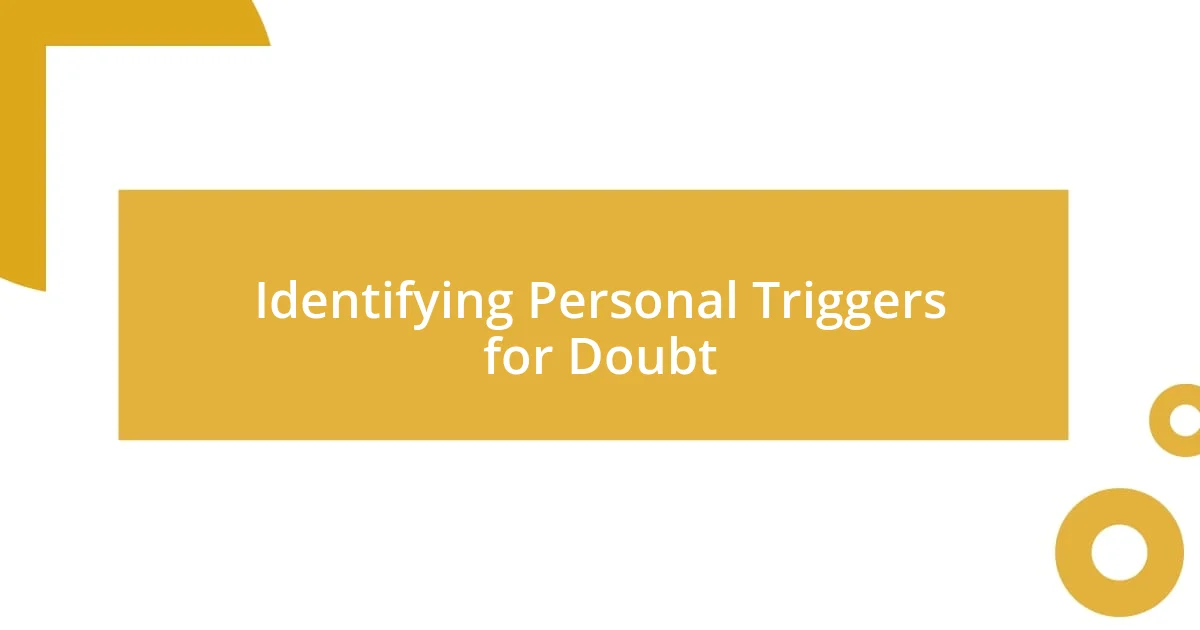
Identifying Personal Triggers for Doubt
Identifying the personal triggers that spark self-doubt can be a game changer for any author. For me, it often surfaces during the initial drafting stage. I tend to overthink each line, thinking, “Is this even interesting?” This reflection can create a chokehold—making words seem impossible to pen down. Have you felt something similar when starting a new project? Recognizing these moments is the first step to reclaiming your confidence.
Another trigger I often experience is engaging with critique early on. I remember sharing a draft with a close friend who, while offering valuable advice, pointed out what I perceived as serious flaws. Instead of viewing this as an opportunity for growth, I quickly spiraled into self-doubt, believing I had little to no writing talent. It’s a reminder that feedback should be a bridge to improvement, not a barrier that reinforces negative feelings about my abilities.
Moreover, I find that fluctuating moods can also trigger self-doubt unpredictably. There are days when I feel on top of the world about my writing, only to have a moment of vulnerability flip that feeling. I recall one evening, after a particularly tough day, opening a manuscript only to hate everything I read. Understanding that these emotional swings are normal helps me take a step back and refocus. After all, self-doubt is a journey, not a destination.
| Trigger | Emotional Response |
|---|---|
| Overthinking initial drafts | Intense self-criticism |
| Receiving critique too soon | Feeling inadequate |
| Fluctuating moods | Irregular self-perception |
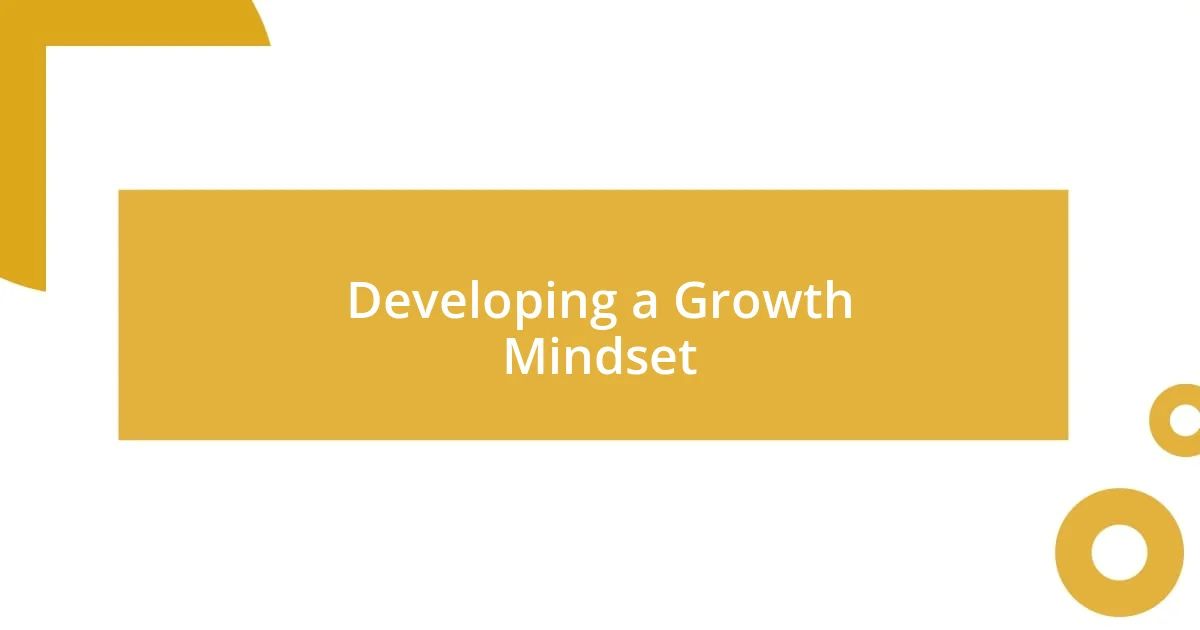
Developing a Growth Mindset
Developing a growth mindset has been pivotal in my journey as an author. It started with a shift in my perception—seeing challenges as opportunities rather than obstacles. I vividly remember the day I decided to embrace mistakes as stepping stones. Instead of cringing at my errors, I began to analyze them, which brought a sense of liberation. It felt like a breath of fresh air, the weight of perfectionism lifting.
To nurture this mindset, I focus on a few key practices:
– Set realistic goals: Small, achievable milestones keep me motivated and allow me to celebrate progress.
– Embrace feedback: I now see constructive criticism as a tool for growth, teaching me more than praise ever could.
– Reflect on experiences: Taking time to journal about my writing journey helps me track growth and recognize patterns.
– Surround myself with positivity: Whether it’s supportive writing groups or uplifting literature, positive influences inspire me to push through self-doubt.
– Practice self-compassion: I remind myself that every author has struggled at some point. Understanding this makes it easier to forgive myself for setbacks.
With each step I take, I feel my confidence growing and my self-doubt starting to fade. Shaping a growth mindset has transformed my approach to writing, allowing me to fully embrace the process.
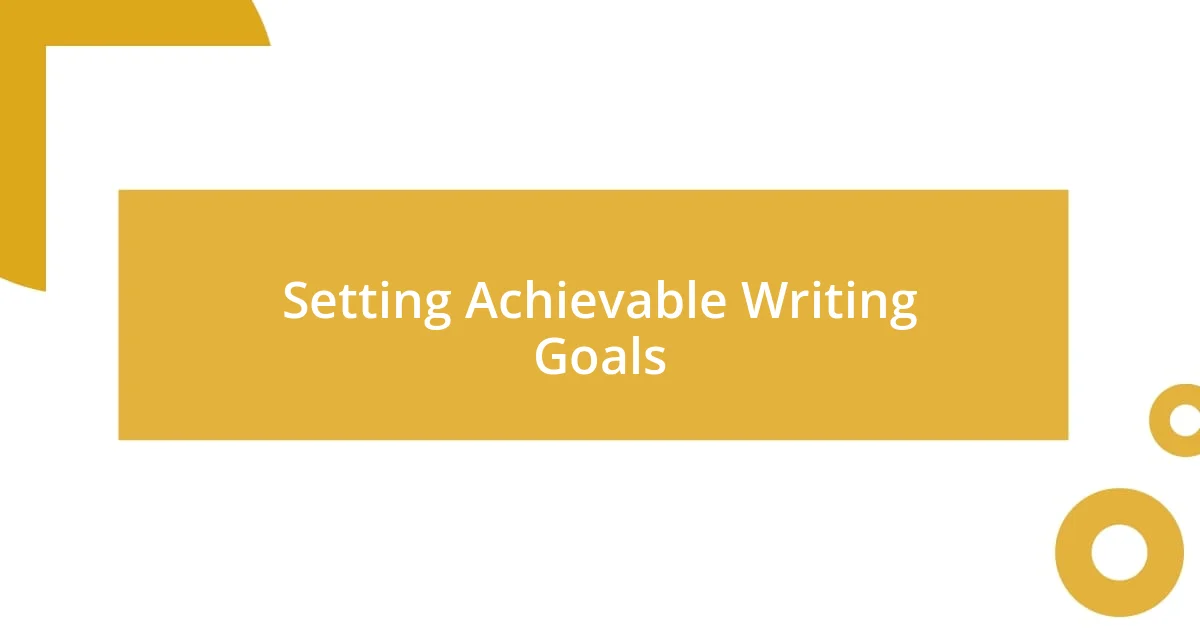
Setting Achievable Writing Goals
Setting achievable writing goals is essential to combat self-doubt. I remember when I decided to scale back my ambitions when drafting my first novel. Instead of tackling an entire chapter in one sitting, I set a goal to write just 200 words a day. That made the task seem not only manageable but also enjoyable. Have you ever tried breaking down your writing into bite-sized pieces? It can truly change your perspective.
I find that celebrating small victories is key. After hitting that daily word count, I would treat myself to a favorite snack or take a leisurely walk outside. These rewarding moments created positive associations with writing, making it less daunting and more like a personal adventure. It’s really about finding those little joys, isn’t it? By focusing on the journey rather than the end result, I began to shift away from feelings of inadequacy.
Tracking my progress has also been a surprising motivator. I keep a simple checklist where I jot down my daily goals. At the end of the week, seeing those checkboxes filled gives me a real sense of accomplishment. It’s like looking back at a map and seeing how far I’ve traveled. By setting these achievable writing goals, I’ve transformed my self-doubt into self-empowerment, allowing my creativity to flow freely. Isn’t it incredible how small steps can lead to meaningful growth?
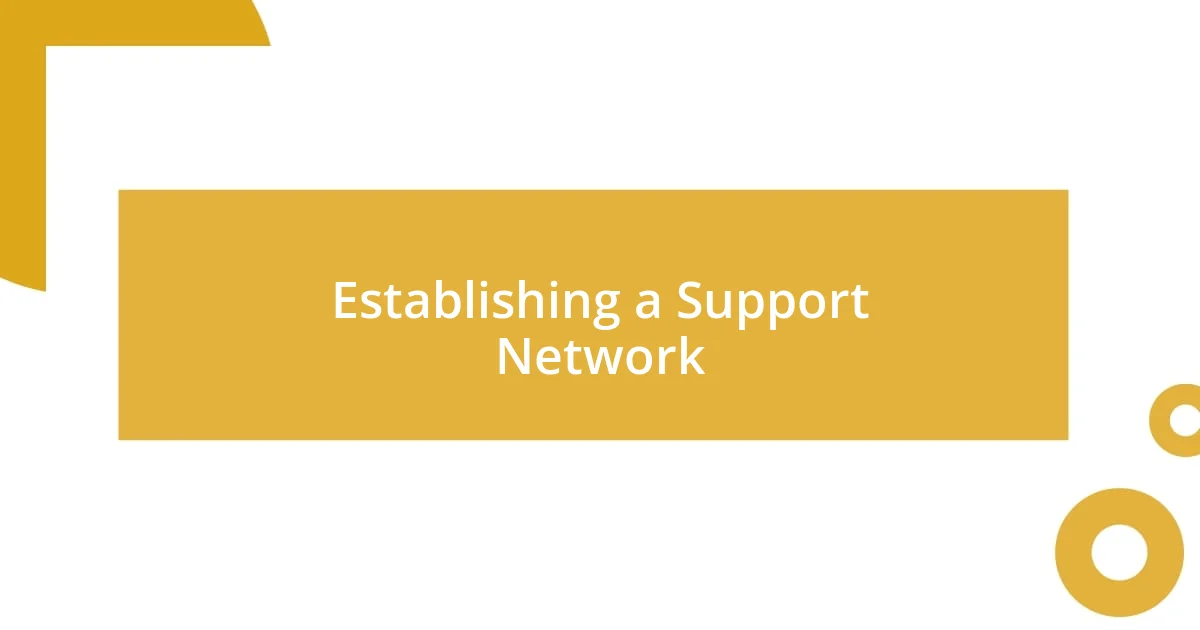
Establishing a Support Network
Creating a solid support network has been a game changer for me as an author. When I first started out, I felt isolated in my self-doubt, often wondering if anyone else experienced the same struggles. Joining a local writers’ group was my turning point. Hearing stories of others—like the writer who almost gave up after receiving a barrage of rejection letters—made me realize I wasn’t alone. Have you ever found solace in shared experiences? It’s remarkable how connecting with others can lighten that heavy weight of self-doubt.
I also learned the importance of surrounding myself with people who uplift and challenge me. One of my closest friends is a fellow author whose candid feedback stings sometimes but fuels my growth. A particular moment stands out when she critiqued a chapter I poured my heart into. At first, I was defensive, but I paused and truly listened to her insights. This willingness to be vulnerable allowed our bond to deepen. Isn’t it funny how honesty can sometimes hurt yet heal at the same time?
As I cultivated my network, I discovered the power of accountability partners within this group. We regularly set goals and check in on one another, ensuring we stay on track. I remember a time when I committed to finishing a short story by a specific date—knowing my peers would ask about it provided the extra push I needed. Doesn’t it feel incredible when you know someone is rooting for you? This collective spirit not only boosts morale but makes the journey more enriching and less daunting, fostering a sense of belonging and shared purpose that truly motivates me to overcome my self-doubt.
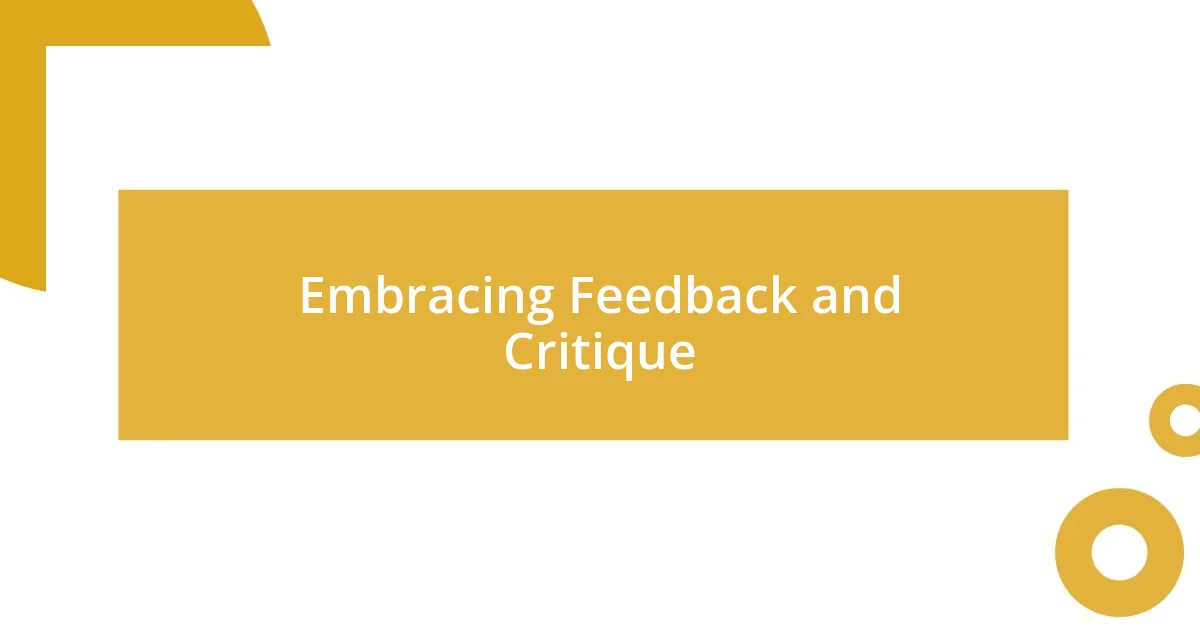
Embracing Feedback and Critique
Embracing feedback and critique has been a transformative experience for me as an author. I remember the first time I shared my work with an editor. My heart raced, and I felt a pit in my stomach, worrying about what they might say. But when their feedback arrived, I was struck by how constructive and insightful it was. Feedback isn’t just criticism; it’s an opportunity to see my work through fresh eyes. Have you ever received a critique that shifted your thinking? It can feel daunting at first, but I’ve learned to view it as a chance for growth.
Another pivotal moment for me was attending a writing workshop where peers provided live critiques. Initially, I braced myself for harsh judgments, but instead, I found encouragement folded within their suggestions. One participant made a comment about my protagonist’s depth, suggesting I explore her backstory more. I didn’t just walk away with ideas—I left with renewed motivation. Isn’t it fascinating how a single piece of feedback can ignite a spark of inspiration?
Over time, I’ve come to cherish feedback as a necessary part of the creative process. I often remind myself that no great work arose in a vacuum. Recently, after completing a draft, I sent it off to a trusted mentor. Their candid comments challenged me to dig deeper into character development. I felt a mix of discomfort and excitement, realizing that my initial reluctance was merely the prelude to profound improvement. This journey of embracing criticism is like pruning a plant; it’s sometimes painful but essential for growth. How do you feel about receiving feedback? Trust me, letting go and leaning into those constructive critiques can truly elevate your writing.
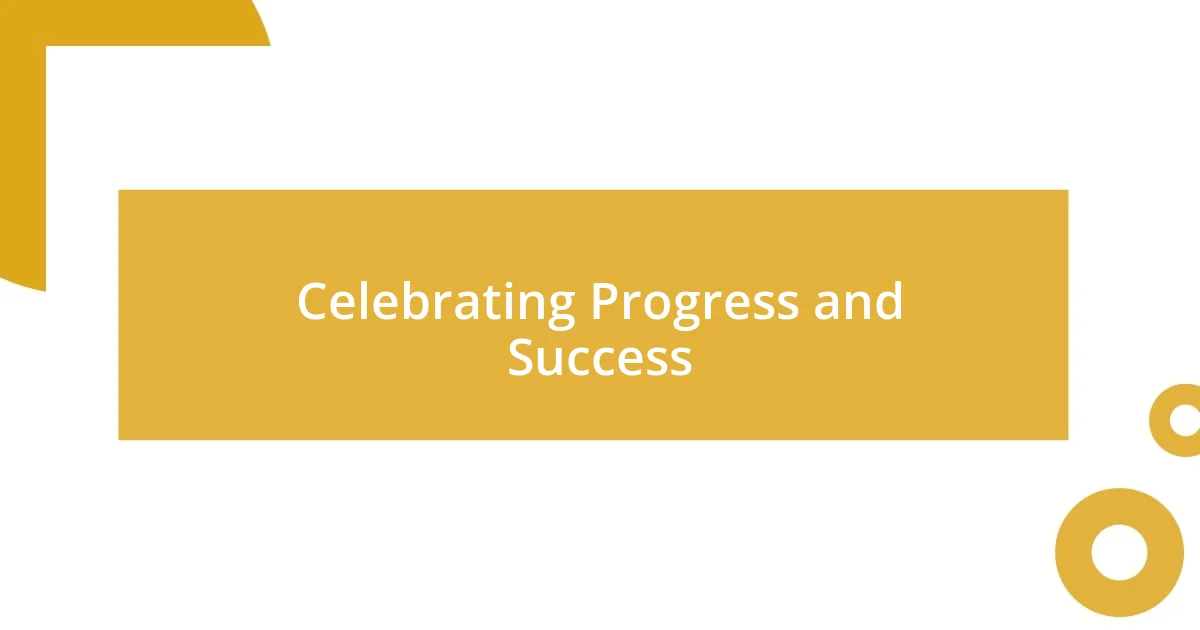
Celebrating Progress and Success
Celebrating small wins has become an essential practice in my journey as an author. After finishing my first short story, I remember the overwhelming mix of pride and relief I felt. I decided to treat myself to a favorite coffee shop, savoring each sip as I reflected on the countless hours of work that led to this moment. Doesn’t it feel incredible to reward yourself after achieving something you’ve poured your heart into? Those little celebrations remind me that progress is worth acknowledging, no matter how small.
Each time I complete a draft or receive positive feedback, I consciously take a moment to celebrate. I often find myself sharing these victories with my support network—my friends often remind me to take a step back and recognize how far I’ve come. One particular instance was when I received a heartfelt email from a reader who connected with my story. I was so moved that I organized a little virtual gathering with my writing group to celebrate our collective achievements. It was liberating to share my excitement and receive encouragement from fellow authors who understood the hurdles I overcame. Have you shared your successes with others? It can truly amplify the joy of those accomplishments.
In reflecting on my progress, I’ve also adopted a habit of journaling my milestones. Whether it’s a completed chapter, overcoming a fear of sharing my work, or even participating in a writing contest, I jot down these moments with vivid detail. One time, I wrote about the exhilaration of winning a small award; capturing that feeling brought back a rush of validation that my efforts mattered. It made me realize that acknowledging progress isn’t just about the big wins but also celebrating the courage it takes to step out of my comfort zone. What victories have you celebrated lately? Recognizing and cherishing our journey not only boosts self-confidence but also fortifies our passion for writing.










